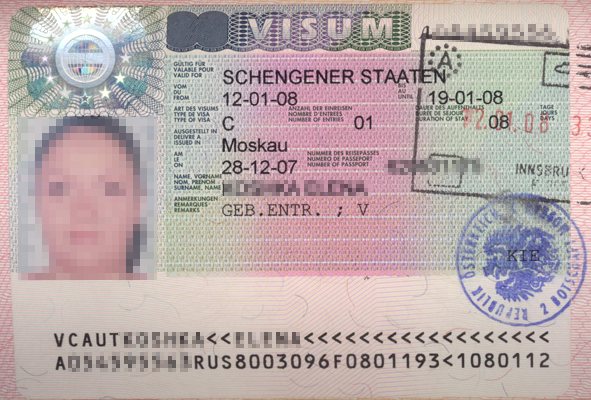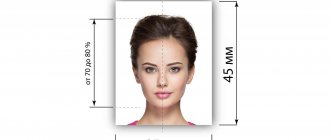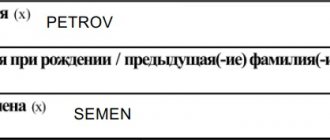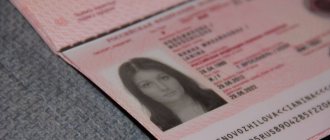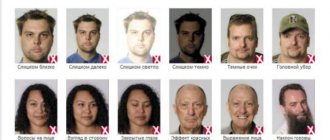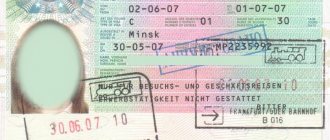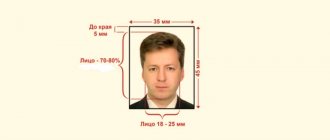1 comment7 questions answered
Austria joins Schengen
- May tours
around the world - Last minute tours
around the world
To visit Austria, Russian citizens require a Schengen visa. The rules for submitting documents generally correspond to the unified Schengen rules.
Applying for a visa yourself
Accredited visa centers in Austria have long taken on the function of issuing Schengen visas. They work in Moscow and many cities of Russia. These organizations are responsible for receiving documents, their primary control and forwarding to the embassy. Collecting the necessary papers, as well as checking them for compliance with the rules, is entirely the responsibility of the applicant.
In Moscow, you need to make an appointment by phone to submit documents; at regional visa centers there is no such requirement.
The Consular Section of the Austrian Embassy accepts visa applications also by appointment. Sometimes getting into a representative office can be difficult - a free window appears only after a few months. They mainly go there for a national visa D (it is not issued at the VC) or in a special/controversial case. Your application for a tourist visa will most likely be sent to a visa center.
The Austrian visa center provides a number of additional services: mobile biometrics, courier delivery of the finished passport, the assistance of a personal assistant who will help fill out the application form and will accompany the client at all stages.
Applying for a visa through a visa center
Austrian visas are issued only through visa centers. The exception is when it is necessary to obtain a national document. Before submitting papers, it is better to familiarize yourself with several rules:
- Submission of documents is carried out personally by the applicant himself or through his closest relatives (in such cases, proof of such relationship is required);
- It is possible for relatives to submit an application instead of the applicant himself only if they have already had a Schengen visa of any country at any time before;
- Children under 18 years of age submit documents only in the presence of their parent(s) or guardian(s);
- Documents are not accepted under corporate powers of attorney;
- Documents are not accepted under notarized powers of attorney;
- Group submissions of documents will not be considered.
Registration of Austrian Schengen visas through visa centers is carried out exclusively by appointment. Appointments are received 5 days a week except Saturday and Sunday from 9:00 to 17:00. If the applicant did not manage to appear at the visa center at the appointed time, he must re-register.
Registration procedure
Before applying for an Austrian visa through visa centers, you must clearly know the purpose of your trip. Having collected all the necessary papers, you should then proceed according to the following algorithm:
- Filling out a visa application form, an electronic sample of which is available on the visa center website (the sample must be downloaded);
- Make an appointment;
- Payment of the consular fee and receipt of the corresponding receipt;
- Submission of the collected package of documents;
- Obtaining a foreign passport with an Austrian visa stamp (or with a refusal stamp).
When submitting papers for an Austrian visa through the Embassy, the algorithm of actions remains the same. However, you must make an appointment at the Consulate department.
Contacts of Embassies and visa centers
Austrian visa centers are located in several cities of the Russian Federation:
- In Moscow, a visa to Austria can be obtained at Dubininskaya Street, 35 (tel.);
- In Khabarovsk - along Istomina street, 22a;
- In Ufa - on Chernyshevsky street, no. 82;
- In Saratov - along Vavilova Street, 38/114;
- In Samara - on Michurina Street, 78;
- In Rostov-on-Don - along Trolleybusnaya street, 24/2v;
- In Perm - on Chernyshevsky street, 28;
- In Omsk - on Frunze street, ¼;
- In Novosibirsk - on Chelyuskintsev street, 15;
- In Nizhny Novgorod - along Shcherbakova street, no. 15;
- In Murmansk - along Karl Liebknecht street, 13;
- In Krasnoyarsk - along Maerchaka street, 16;
- In Krasnodar - on Academician Pavlova Street, 64;
- In Kaliningrad - along 1812 Goda Street, no. 126;
- In Irkutsk - on Sverdlova street, 10;
- In Vladivostok - along Okeansky Prospekt, 17.
The Austrian Embassy in Moscow is located in Bolshoi Levshinsky Lane, 7 (tel.). Documents from individuals are accepted at the address: Chisty Lane, 11.
Reception days: Monday-Friday. Documentation reception hours are 9:00-12:00, interviews are 12:00-13:00, visas and passports are issued - 14:30-16:00.
Cost and processing time
The current cost of an Austrian visa, if you apply for it yourself, includes the basic consular fee and the visa center service fee. As of 2019, the prices are as follows:
- National type visas (student, work, etc.) – €100.
- Schengen visa category C – €35.
- Transit - €35.
- Visa center services – €26.
Payment is accepted exclusively in Russian rubles, according to the euro exchange rate valid at the time of payment.
The following categories of persons are completely exempt from paying the above fees:
- Citizens with any disability group and persons accompanying them;
- Children under 6 years old.
According to a special article in the EU Regulation regulating the timing of visa issuance, the average processing time for submitted applications is 15 days. However, there are special situations in which this period can be extended to 30-60 days. The Austrian visa center announces an issuance time of at least 9 days.
Visa validity period
According to the European Union standard, Austrian visas are divided into 3 categories based on their validity periods:
- Single use - valid for 1-2 weeks.
- Double - valid for 0.5-1 year.
- Multiple visas - valid for up to 5 years.
At the first application, the applicant is usually issued a single-entry visa. Any of the Schengen visas of category “C” gives its holder the right to 90 days of stay in the country within a period of 180 days from the date of first entry; permission for a 180-day stay in the country over a period of one year is given by an Austrian national visa. To obtain an extension of this permit, you need to contact the Austrian Embassy.
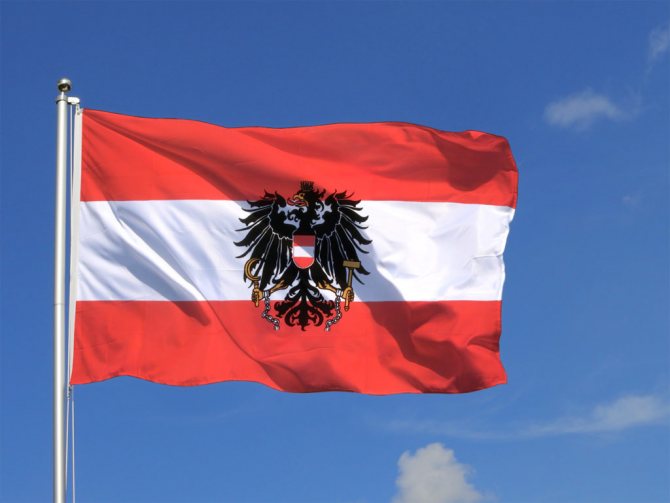
Documents for a visa to Austria
Required documents to obtain Schengen category C:
- Questionnaire
A completed form in English or German with the personal signature of the tourist, a sample is available at the office. website of the Austrian Embassy; - Two photographs
Two color photographs 3.5 x 4.5 cm (see photo requirements below); - passport A
foreign passport valid for at least three months after the expiration of the visa, with two blank pages (if you have other valid foreign passports, you must provide all of them); - Photocopy of the international passport
A copy of the first page of the international passport and all Schengen visas for the last 3 years, including those from canceled international passports; - Photocopy of the general passport
Copy of the first page and the registration page; - Medical insurance
Medical insurance valid throughout the Schengen territory and for the entire duration of the trip (the amount of insurance coverage is at least 30,000 EUR); during the period September-May, the policy must include a clause on winter sports if the applicant goes skiing/snowboarding; - Air tickets
Round-trip air tickets or other travel documents are also suitable for ticket reservations; - Certificate of employment
Certificate of employment with the stated position and salary; - Bank account statement
The statement must be recent and not older than 6 months; - For non-working pensioners
A copy of the pension certificate plus an account statement or sponsorship letter with a photocopy of the sponsor's Russian passport along with a certificate from his place of work indicating his salary and position/certificate from the bank confirming the presence of a deposit; - For students, schoolchildren
Certificate from the place of study, sponsorship letter with a photocopy of the sponsor's general passport, certificate from work/extract from the sponsor's account (issued according to the general rules); - For individual entrepreneurs
Extracts from the Unified State Register of Legal Entities and from the company's account, certificate of registration of the enterprise; - reservation
with details of all guests who will stay in the room. - Business visit
An original invitation signed by a business partner in Austria on the company’s letterhead, indicating the timing and purpose of the trip, as well as the personal details of the invitee; - Private visit
Invitation in free form with the dates and purpose of arrival in Austria, where the personal data of the inviting and invited persons are entered; if the applicant does not provide financial guarantees, then the receiving party encloses a document accepting all obligations to ensure the trip (Form EVE), which is signed by the office for foreigners at the place of residence of the inviting person in Austria.
A few years ago, all documents (certificates, extracts, certificates, letters) required translation into German/English. It had to be done by a competent translation agency and certified with a seal. Now this is not mandatory, however, an application with translated documents can be considered faster.
What documents will be required?
When applying for a student visa to Austria, remove all folders, transparent files and paper clips and simply put the documents in a neat pile - the consulate staff can tell you the order.
- Application form (sample)
It is freely available on the official website of Austria and is available for downloading. The old versions have 10-11 pages, the new ones consist of 9 pages: there are few differences between them and both are accepted at the Embassy. The application form must be printed on a high-quality, clear printer (preferably in color), and filled out carefully and legibly in block letters (use a ballpoint pen). The filling language can be English or German. In field 1 (upper left corner) your photo is pasted, and in field 2 (upper right corner) you will need to sign in the presence of the employee who will accept your documents.
We recommend taking a clean (spare) copy of the application form with you to the consulate if you find errors or inaccuracies and need to rewrite it (since edits are not allowed).
- Original and copy of invitation from educational institution.
There is no need to give the original to the consulate - it can be useful in solving other issues. Make a high-quality color copy.
- Proof of housing availability in Austria
These can be documents for the hostel (agreement, bank receipt for payment for accommodation services, bank certificate for the execution of the transfer); for a rented apartment (lease agreement - preferably long-term - with your original signature, a color copy of the first passport page of the owner of the property, an extract from the land register (which confirms the ownership of the apartment by the lessor), bank confirmation of the transfer and a bank certificate confirming that the payment has been credited to the account of the apartment owner ). Please note that VTB24 and Raiffeisen Bank can directly transfer money to banks in Austria - Sberbank carries out the transaction through intermediaries, so it charges a fairly impressive commission.
- Financial documents
A bank statement confirming your account balance is an essential condition if you need a study visa to Austria. Be sure to check the presence of the phrase “Funds from this account (full name) can be disposed of abroad, including in Austria”, a bank card copied from the outside with the name, a certificate from the place of work; 2-NDFL. Please note that all documents (except copies of the bank card) must be translated into German and certified by a notary, and the notarized document must also be translated. These documents are provided if you have reached the age of majority, have a job and official income.
If you have not reached the age of majority and you need a student visa to Austria, the financial documents for you will be the following:
- sponsorship application from one of the parents, drawn up by a notary
- certificate of bank account balance (personal and sponsor)
- bank statement about completed monetary transactions for the last 3 months (personal and sponsor)
- bank card (personal and sponsor), copied from the side with the name
- copy of the first page of the sponsor's passport
- 2-NDFL for the sponsor and a certificate from his place of work.
For 2021 the following amounts were relevant:
- Up to 24 years old = 6,183 euros (for 12 months)
- Over 24 years old = 11,196 euros (for 12 months).
If the monthly rental price exceeds EUR 294.65/month, proof of availability of appropriate additional funds must be provided.
- Copy and original birth certificate with apostille
An apostille is affixed to the original: it can be affixed at the registry office, but be prepared that sometimes it can only be affixed at the institution at the place of birth. The apostilled certificate is copied, the copy is certified by a notary, translated into German (along with the certification) and submitted to the Embassy.
- Black and white copies of all pages of the international passport: both the current one and all previous ones (if available).
- Medical insurance policy.
Validity period - 1 year, insurance coverage of 30,000 euros for 120 days. Insurance can often be obtained from insurance agents who officially work at the consulate - but if you decide to look for an insurance company on your own, be sure to make sure that the company is on the official list on the consulate’s website. Without health insurance, a visa to study in Austria type D will not be issued.
- Certificate confirming no criminal record
For applicants over 14 years of age, a certificate of no criminal record is required. It can be issued at the regional center of the Ministry of Internal Affairs (production time is about a month, it is done free of charge for citizens of the Russian Federation), an apostille is affixed to it (approximately 1,500 rubles). The certificate with an apostille is translated into German, certified by a notary, the certification is also translated and provided upon general submission. Please note that the validity period of such a certificate is 3 months, no more. Certificates ordered on the State Services website are not accepted.
- certificate of residence
It’s easy to apply at a regular passport office - it confirms your registration at a specific address. Translated into German, certified by a notary, the certification is also translated and provided when submitting documents for a student visa in Austria.
- Marriage certificate
Required for all married or married students. An apostille is also affixed to the original (usually this can be done at the registry office), a copy is made and certified by a notary, translated into German, the translation is also certified and the notarized document is also translated into German. If you are divorced, a formal divorce petition (copied, translated and certified in the same format) will be required.
Be sure to pay attention that the data in all documents is written the same way: addresses, first and last names, etc. It is also necessary to have original documents with you when visiting the Embassy - employees ask to show them when submitting.
Visa for children
A separate form is always filled out for children. If the child is over 14 years old, then along with the signatures of the father and mother, his signature is also required. In addition to the standard package of documents, minors provide consent to travel certified by a notary in case of traveling unaccompanied by parents/guardians, as well as when traveling with one of the parents/guardians (consent is required from the second). In addition, it is necessary to attach copies of the birth certificate, the first pages of the father/mother’s internal passports and copies of their Schengen visas (if the papers are submitted at different times).
Photo requirements
Photo size - 35x45 mm, age - no older than 6 months, for small children - no older than 3 months. A white background is required, without borders. The photo should clearly show the face, ears and hair. If the applicant wears a head covering for religious reasons, it is necessary that the chin and forehead remain exposed. Glasses are allowed, but only in light frames that do not change appearance.
The photographs should not contain foreign objects, other people, blots, spots, glare, or dark areas. High resolution and good quality photos are accepted.
The length of the head from the chin to the crown is approximately 30 mm (70-80% of the area). The photo is taken from the front, the gaze is directed at the camera, there is no smile.
Consular fee – 35 €
When receiving an Austrian Schengen visa through a visa center, you must pay two fees: consular - 35 EUR and service - 19.47 EUR for each application form. When contacting the embassy, only the consular fee is charged. Applicants applying for a visa at a visa center in any city in the Russian Federation (not Moscow) pay an additional 450 RUB for logistics.
Children under 6 years of age, persons with disabilities, schoolchildren and students with accompanying teachers traveling to Austria to study, members of official delegations and cultural exchange programs, as well as participants in youth sports competitions do not pay a consular fee. The same applies to persons with a humanitarian nature of the trip: treatment, funeral, visit to a seriously ill relative.
How much does a visa to Austria cost: price at the embassy and visa center
When applying for an Austrian visa through the consular department of the Embassy, you only need to pay a visa fee, the amount of which is 35 euros. When applying to the Visa Application Center, you will need to pay an additional service fee of 20 euros.
Payment of fees at the Austrian embassy is carried out by payment order from the consular department at the bank. Payment at the visa center must be made only in rubles at the rate established by the Austrian Embassy in Moscow. You can pay for a visa either by card or in cash.
Fees are non-refundable if the visa is refused for various reasons.
Validity
The Austrian consulate is not very generous with long-term visas. Most applicants are issued a document for a travel period of 5-10 days; others receive a document for 1-2 months (or even 5), but with a limited period of stay. “Cartoon” for six months to a year goes to the lucky ones who, for example, regularly visit Austrian ski resorts or music festivals. But this happens extremely rarely.
The general rule remains unchanged - an Austrian Schengen visa gives the right to stay in the country for up to 90 days once every six months without limiting the number of entries and exits.
How to get to Austria without a visa?
The Russian Federation is not among the states whose citizens are allowed visa-free entry into the territory of the European Union and the Schengen zone. It follows from this that it is impossible to enter the EU on the basis of Russian civil documents alone in the absence of a visa.
How can you get to Austria without a visa? For Russian citizens, the following alternative methods exist:
- Availability of the right to repatriation. This right is ensured due to the ethnic Austrian origin of the applicant;
- Entry into the territory of the state in question on the basis of citizenship of any other country of the European Union.
The second option is the simplest. The fact is that the EU has a program for facilitating the provision of additional European citizenship. A citizen of any EU state can enter the territory of Austria without hindrance (thanks to the pan-European visa-free regime). Having lived only 3 years on Austrian soil, this person receives the right to obtain Austrian citizenship.
But what should a Russian do if he is not an EU citizen?
Practice shows that the most popular way among Russian residents to go to Europe is to obtain Romanian citizenship. Due to the fact that this state, starting from January 1, 2007, is a full member of the European community, its citizens are endowed with all the benefits of citizens of the European Union. In addition, you should pay attention to the significant advantages of the procedure for approving Romanian citizenship before applying for a Schengen visa (including an Austrian one):
- Low consular fee for consideration of an application for admission to the ranks of citizens. Full European citizenship for only 70 euros;
- The percentage of refusals for applications for Romanian citizenship is significantly lower than for an Austrian visa (subject to the right to Romanian citizenship and a complete list of required documents);
- The Romanian passport provides its holder located in Austria with a full range of civil benefits and powers, while the visa restricts the resident in terms of movement, work and many other aspects;
- If you have Romanian citizenship, you can enter and leave Austria an unlimited number of times, while even a Schengen multiple visa has a limited period of stay;
- This citizenship allows you to work in Austria without an additional work permit.
As with obtaining an Austrian visa, it is not necessary to travel outside the Russian Federation to become a Romanian citizen. To do this, it is enough to submit the necessary package of documents to the Romanian consulate closest to the applicant’s place of official residence.
Embassy and consulates of Austria in Russia
Austrian Embassy in Moscow
| address | Moscow, Starokonyushenny lane, 1 |
| telephone | (495) 780-60-66 |
| website | www.bmeia.gv.at/ru/oeb-moskau |
Consular Section of the Austrian Embassy in Moscow (visa section)
| address | Moscow, Chisty per., 11 |
| telephone | +7 |
| website | www.bmeia.gv.at/ru/oeb-moskau |
Visa service center in Moscow
| address | Moscow, Kashirskoye shosse, 3, bldg. 2, building 4, Business, 2nd floor |
| telephone | +7; |
| [email protected] | |
| website | website of Austria Visa Application Centers in Russia |
Visa service center in St. Petersburg
| address | St. Petersburg, st. Bolshaya Raznochinnaya, 16/7, entrance from Chkalovsky Ave. 7, 2nd floor |
| [email protected] | |
| website | website of Austria Visa Application Centers in Russia |
Visa service center in Kazan
| address | Kazan, st. Paris Commune, 8 |
| [email protected] | |
| website | website of Austria Visa Application Centers in Russia |
Visa service center in Krasnodar
| address | Krasnodar, st. Akademika Pavlova, 64, 1st floor |
| [email protected] | |
| website | website of Austria Visa Application Centers in Russia |
Addresses of other Austrian visa centers in Russia can be found on the website: www.vfsglobal.com.
Answers to questions about obtaining a visa to Austria
- Where is the Austrian consulate located?
- Where is the Austrian Embassy located?
- How to apply for a student visa to Austria
- When can you get a Schengen visa again after deportation?
- Is it possible to get a visa to Austria for a year in Georgia?
- Is it possible to visit Austria with a Schengen visa to Lithuania
- Is a visa required for Austria if you already have a visa for Spain?
Ask your question
What visas are issued to Austria?
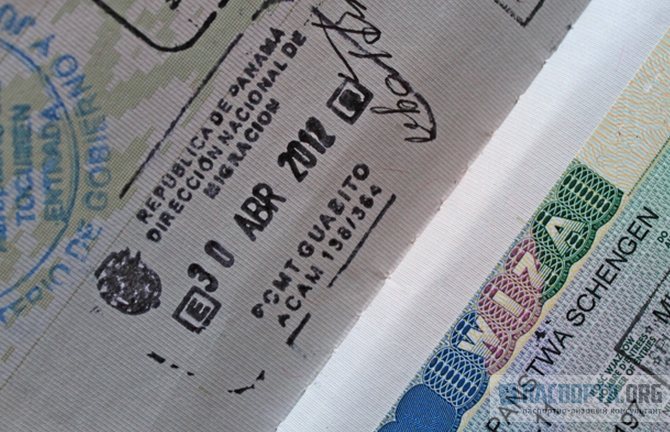
The following types of Austrian visas are issued:
- Category A. Transit permit created for air travel, if necessary, transfer to Schengen states. Without going beyond the designated limits at the country's airport, the traveler does not have to obtain a special permit.
- Category B. Transit visa, intended for travelers traveling to other countries through the territory of Austria. This type of permit is issued for 5 days. Suitable for flights and train travel.
- Category C. Intended for short-term trips that do not exceed 90 days.
- Category D. Issued in the state for a period of 3 months to six months.
The most common visa document options that fall into category C or D are:
- Tourist visa. Used for cultural trips, sightseeing, recreation. Also used for short trips on a business trip or visiting friends.
- Student visa. Designed for tourists who want to study in Austria legally. Used for studying at universities, schools or other institutions. The permit will be issued only if the tourist has an invitation from the university.
- Work Visa. A national type of permit, which can be issued if you have a long-term work contract with an official employer in Austria.
Important! The tourist type of entry document does not allow you to find a job or do business in Austria.
For those who plan to stay for permanent residence, it is necessary to obtain a residence permit in Austria.
